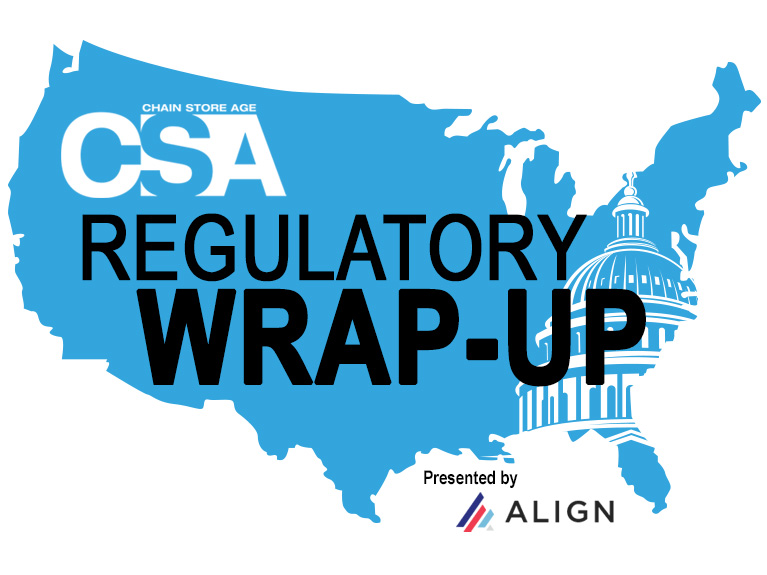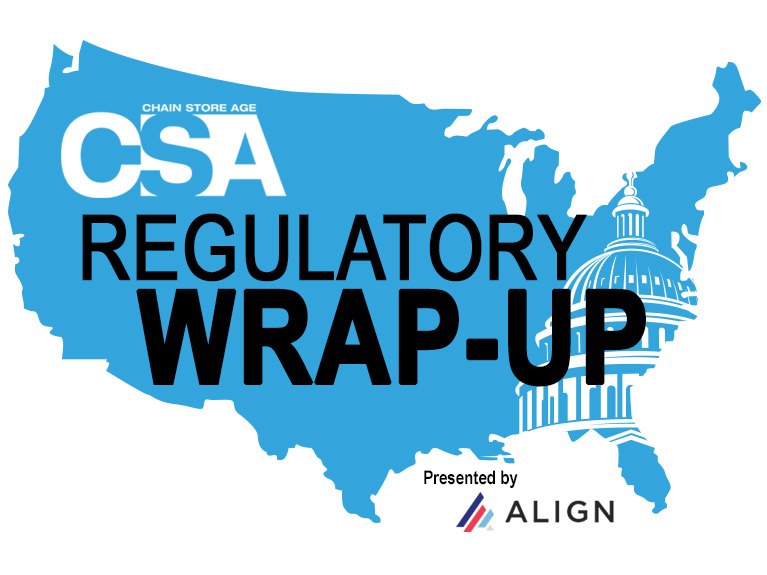
Wages
Federal – Senator Bernie Sanders (D-VT) introduced legislation that would ban large companies from buying back their own stock unless they meet a few criterion: pay all employees $15/hr, provide seven days of paid sick leave and prevent executive compensation from rising above 150 times the median employee pay. The senator named the bill the “Stop Walmart Act.” The bill has no chance of becoming law but certainly will serve as a talking point for Sanders over the coming months.
Michigan – The legislature is in post-election recess but once it returns, legislators are likely to address minimum wage. Ongoing discussions are focused on adjusting the provisions around the tip credit as well as the phase-in period. It remains to be seen what specific changes gain enough support. The Republican-led state is likely to move on the issue during the lame duck session, before the new governor, a Democrat, takes office in 2019.
New Jersey – The Assembly Speaker declared his support for passing a $15/hr minimum wage increase in the next few months. The state legislature has generally supported the increase and passed a bill in 2016 that then-Governor Christie vetoed. Negotiations are ongoing and focus on issues such as exemptions for certain industries and whether to include a tip credit and/or youth training wage.
Texas – Senate Democrats introduced legislation to raise the state’s minimum wage from $7.85/hr to $10.10/hr. The bill faces an uphill climb. But, given that the legislature is also likely to address preemption of local laws on paid leave and benefits, there may be an opportunity to advance a comprehensive legislative package that could include a moderate increase.
Denver, CO – The city is considering legislation to raise the minimum wage for city employees to $15/hr. Also under discussion, is extending the increase to city contractors, vendors and tenants which could impact a number of private companies. The mayor’s office has requested an economic impact study prior to action on the bill, which is expected to be completed early in 2019.
St. Paul, MN – The city council passed an ordinance raising the minimum wage for city businesses to $15/hr over a period of several years, depending on the size of the business. Importantly, the definition of franchises was adjusted and is now based on the total number of employees at locations owed by a single franchisee, as opposed to earlier language that classified franchisees as based on the size of the entire franchise system. The ordinance does not establish a tipped wage but does exempt youth workers in city-approved training programs. The first increase will go into effect in 2020.
Paid Leave
Michigan – In addition to scaling back the pending minimum wage increase, the legislature is also likely to adjust the recently-passed paid leave bill during its lame duck session. Adjustments to the amount of advanced notice employees must provide and employer record keeping provisions continue to be part of the discussion.
Etsy – The handmade goods marketplace updated its employee benefit policies to include some innovative offerings. Etsy currently offers up to 26 weeks of gender neutral paid parental leave and employees can now elect to trade in up to 14 weeks of that leave for a cash payment. The company will also offer subsidized backup childcare services beginning in 2019.
Scheduling
Philadelphia, PA – The city council was scheduled to continue debate on the city’s “fair workweek” legislation this week but postponed that action pending ongoing negotiations with the business community. The bill will likely be taken up at the Nov. 26 meeting and a final bill could be voted on as early as Dec. 6.
Walmart – The retail chain is expanding the use of its scheduling app to all stores nationwide by the end of Nov. Following a successful pilot launch earlier this year, the app incorporates employees in the scheduling process. It allows them the flexibility to add or swap shifts as well as establishing a “core hours” of standard weekly shifts. The app also benefits managers who have reported saving upwards of eight hours per week as a result of the automated process.
Labor Policy
EEOC – As a result of Equal Employment Opportunity Commission actions, employers paid about $505 million to nearly 70,000 workers in fiscal year 2018. Due to a combination of factors, the EEOC reported a 30% increase in filed complaints.
Google/Facebook – Facing public pressure campaigns, both Google and Facebook announced that they will eliminate mandatory arbitration to resolve allegations of sexual harassment.
H&R Block – A tax preparer hit the company with a proposed class action lawsuit in Illinois federal court, claiming the company’s non-compete clauses for employees and “no-poach” agreements between its corporate offices and franchises have illegally stifled wages and career advancement of thousands of workers. The lawsuit follows months of enforcement actions and lawsuits targeted at restaurants and is indicative of the momentum of the issue as it moves to other sectors.
Taxes
Federal – As Congress reconvenes for the lame duck session, the tax writing committees will continue to debate potential technical changes to the landmark tax reform law that passed earlier this year. House Ways and Means Chairman Kevin Brady indicated his office would soon release language addressing many of the technical concerns that have been raised. Of great interest to retail is the drafting error that now requires companies to write off certain investments over decades, rather than over one year as intended.
Data Privacy
U.S. Senate – Senator Ron Wyden (D-OR) introduced internet privacy legislation modeled after the European Union’s recently enacted General Data Protection Regulation (GDPR). The bill will get more attention in the next Congress but the proposal indicates the direction the U.S. House may take on the issue. While internet data privacy regulations have been long-debated, the ongoing public concern regarding the manipulation of consumer data and the effect social media networks have had on political dialogue makes regulatory action in this space more likely than ever.
Trade
U.S. International Trade Commission – The independent federal agency held two days of hearings to assess the potential economic impact of the proposed U.S.-Mexico-Canada Agreement as it prepares to make recommendations to Congress. The commission heard from labor groups, industry representatives and leading house Democratic lawmakers who will control the proposal’s fate when the new Congress convenes in Jan. Democrats and labor interests in particular indicated that improvements may be needed in order for the proposal to successfully pass the House next year.
China – The Trump Administration reiterated its intent to increase tariffs on $200 billion worth of Chinese imports from 10 percent to 25 percent effective Jan. 1, 2019. The announcement comes after reports that key U.S. officials had intimated that the increase was on hold pending a meeting between President Trump and Chinese President Xi at an upcoming G-20 meeting in Argentina.
Key Takeaways
- Walmart’s announcement of a new scheduling app for its workers further isolates the industry on this issue and undercuts its traditional political arguments against a mandate. Brands are going to have to solve this issue for themselves because the likelihood of controlling the issue through the political process continues to diminish.
- Former Starbucks CEO Howard Schultz continues to lay the groundwork for a 2020 presidential run. Brands should be prepared for the industry’s business model to be front and center if that happens. While the nomination of Andy Puzder provided a similar forum for examination, Puzder was a fervent defender of the restaurant business model and also of franchising. In contrast, Schultz is often characterized as the defender of his company’s progressive culture, standing apart from the rest of the industry. Starbucks turnaround under Shultz’s leadership is often characterized by a string of decisions or actions that bucked industry norms, often times portrayed as sacrificing short term gains in order to “do the right thing” by the company’s employees. In this way, Schultz’s growing national profile may increase the expectations of other brands, casting some practices in a negative light.
Legislature Status for Week of 11/19/18
- The United States Senate is in recess this week
- The United States House is in recess this week
- Two state legislatures are meeting actively this week:
Podcast
Check out our Working Lunch podcast each week that includes further analysis into these legislative issues, policy, politics and much more. You can find Working Lunch on the Nation’s Restaurant News website, or by clicking here, and when you download the podcast and subscribe on iTunes here.

